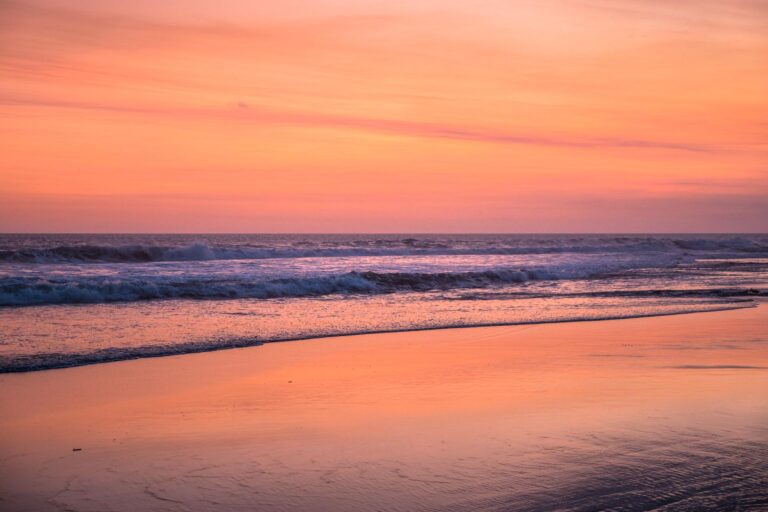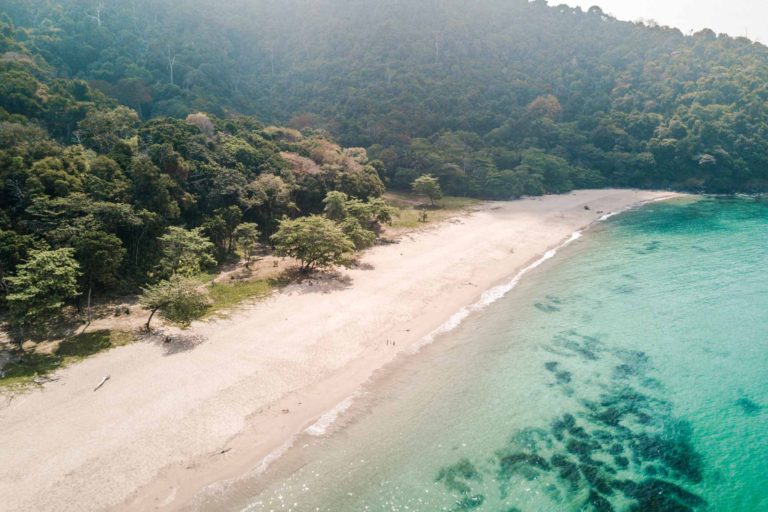5 Tips on Staying Productive & Healthy for Ambitious Digital Nomads
Become sharp and happy by prioritising your physical and mental healthAre all digital nomads inherently ambitious?
Setting off on the life path of becoming a successful digital nomad is hard.
Making money online takes a tremendous amount of work and dedication. To make it you often need to put in long hours of laser-sharp focus and to say no to more things than you’d like.
The freedom that comes with being a digital nomad is awesome. But in the end, it’s not worth much if you can’t make that income sustainable for yourself energy-wise. Burnout is too common in this field.
You don’t want to be in a situation where what makes your lifestyle work is putting your longterm health at risk. Unfortunately, that’s what can happen if you don’t pay attention to signals of stress.
This article is about how you can avoid that and stay both productive and healthy by incorporating some easy, healthy routines. Let’s go!
Table of contents

1. Get physical and stay fit
If you work as a digital nomad, chances are that you spend a lot of time in front of a computer and with your smartphone.
Apart from the obvious fact that spending lots of hours in crouched and bent positions isn’t optimal for your body, what’s even less optimal is the fact that being sedentary is down-right dangerous.
While equating sitting with smoking is unwarranted*, sitting is still far from great.
Building great physical routines around your work is difficult but super important.
We often feel like we need to sit concentrated for hours on end (almost without moving) to get stuff done.
But try to practice to get up and move once in a while, even if it’s just for a few minutes. Throw in some squats or push-ups as well to get your blood flowing and activate your muscles.


Moving daily
One of the best things you can do for yourself is to do some kind of daily physical activity.
It doesn’t have to be very intense (at least not all the time every time), but you do have to elevate your heart rate.
A brisk walk is good, but finding joy in an activity like swimming, dancing or playing sports is even better.
Movement is essential for long-term life satisfaction on a lot of different levels.
Apart from all the physical benefits (and there is an almost indefinite number of those!), you can have a lot of social benefits to practising some kind of movement by interacting with like-minded people.
This can be especially great for digital nomads who may not have huge networks at new locations.
Yoga and Crossfit seem especially popular with digital nomads and millennials in general, but don’t feel limited to what’s immediately available.


2. Train your brain
Everyone is talking about physical training while not as much is said about training your brain.
Your brain being the little machine that runs everything you can do, it makes sense to dedicate more time to caring for it and keeping it sharp and healthy.
Most digital nomad-type jobs are inherently very mentally tasking so you might feel like your brain gets worked plenty simply by working.
While that might be true, it can still bring you huge benefits to train your brain in other ways to keep it fast and fluid.
Generally speaking, it makes sense to try and train both activities that you like and that you feel good at as well as things that you have a harder time with.


Here are some ideas for keeping your brain sharp:
- Learn a new language. If you’re travelling or living outside your home country this is especially relevant and very practical as well as being absolutely fantastic for your brain health. Taking classes with locals will most likely be the best option but teaching yourself is also possible. Check out the app Duolingo.
- Be active. Yup, exercise is great for your brain, too. Make it a double-whammy by moving your body outside. Simply going for a brisk walk is amazing for your brain and senses.
- Pause and think before Googling something. All the information is at the tip of our fingers with internet-connected smartphones these days, but it makes sense to use your memory and try to remember the name of that-actor-in-that-movie before searching for the answer online. Give it one more minute when it gets unbearable before giving in.
- Train your logical skills. This can be especially relevant if you work in a very creative field like photography or design. Doing simple calculations in your head instead of on a calculator is a start. Sudoko, playing chess and the like is even better.
- Other tips: Engage in free-association. Use your non-dominant hand. Try drawing a map of your hometown. Play cards. Try puzzles. Walk an unfamiliar route. Engage with a new person.

3. Build your personal meditation practice
Meditation is a tool more powerful than you probably think.
How beneficial can just sitting and not thinking be? And is it even possible for you to do?
First of all, meditation is definitely not about not thinking.
Meditation is about awareness and stillness.
And isn’t that something we could all use a little bit more of?
Just like with physical exercise, the benefits of a regular meditation practice are so profound that typing up a few bullet points don’t fully do it justice. But as this is the internet, after all, we’ll give it a shot.
The benefits of meditation to digital nomads:
- Gain focus. Honing your attention and concentration is one of the best things you can do for your own career and life in general. Get more done quicker by doing it better the first time. Meditation has taught us a lot about putting our attention on just one thing at a time. Our attention spans have also become longer thanks to our practice.
- Reduce stress. We’re all too stressed at times. Meditating can help you de-stress; lower your shoulders, slow your heart rate and make you breathe deeper into your stomach.
- Learn how to relax. Meditation can help you learn how to relax your brain. If you don’t learn how to do this, your mind can be in a perpetually stressed state, even when you’re not working. Relax when you relax and work when you work.
- Become more aware. A healthy meditation practice is gold for becoming aware of yourself and how you’re feeling moment to moment. Learning the difference between when to take a few minutes away from the screen and soldiering on can make a huge difference to your output and your health. Becoming more aware of how others might be feeling is also an amazing benefit.
- Improve health markers. Studies have shown meditation to both lower blood pressure and boost the immune system. It is also great for easing anxiety and depression while promoting creative thinking.
If you are still wondering why you should meditate, Elevate Calm has a great post about who meditation benefits the most.


So where and how do you begin meditating?
While it’s totally possible to sit down and meditate on your own, we strongly encourage you to go through some kind of course to learn how to meditate.
Meditation is a skill that’s very teachable – you just need to find a teacher that resonates with you.
Using meditation apps is hugely popular and is a low-commitment way of starting your meditation journey. Try a few different ones to see what you like.
Compatibility is everything with these apps as the feel of each interface and voice can be very different.
Our three favourite meditation apps:
- Calm: Tamara’s voice is very soothing. Great daily meditations. Includes small courses and sleep stories that we often listen to.
- Waking Up: Amazing 50-day intro-course that goes really deep on mindfulness and consciousness. Waking Up is more of a commitment in terms of concentration “needed” but very good.
- Ten Percent Happier: Great for sceptics. Very user-friendly. Nice courses and high-quality video-material in addition to the audio lessons.

4. Call your family and friends
Living as a digital nomad often means being away from your hometown – and most of your family and friends.
While we think it’s a great idea to visit them as often as you can and want, calling them up on Skype, Facebook Messenger or similar offers a great alternative in the short run.
Especially if your wifi allows you to share video at the same time.
Connecting with your loved ones can bring you a sense of connection that’s essential for your well-being.
If one of us ever feel energetically low, we pause and consider how long it’s since we have talked to our family and friends back in Denmark.
Even shorter calls can be hugely beneficial to stay on top of gossip and life events once in a while. And to let everyone know what you’re doing and how you’re feeling, too.


Help them understand what you’re doing
We feel that this point is often overlooked when it comes to living as a digital nomad.
Making people truly understand your lifestyle might not be possible for the older generations, but by being honest and transparent you can at least help them try to understand the most important parts.
Sharing your failures and vulnerabilities is at least as valuable as sharing your successes.
Don’t be too afraid of judgements – people genuinely just want you to live your best life and if someone is sceptical of your lifestyle, it’s often because they don’t fully understand your choices. Yet.

5. Take time off work
If you’re one of the people who hear a sentence like ”take time off work” as something close to impossible, this point is of particular importance to your health.
That living your life besides your work is a healthy thing to do once in a while shouldn’t come as a surprise – yet it’s a really difficult thing to do for many ambitious digital nomads.
Start by deliberately taking just a few hours off a week to ease into a routine where your default mode isn’t “work mode”.
Consider putting those hours towards some of the activities listed in this article – although how you use your free time is totally up to you. That’s the whole point!
Taking time off work means taking back your power to decide for yourself how you want to spend your life.
While it’s totally respectable to decide that you want to spend time working, the whole idea of work is still so closely related to societal values of self-worth that it’s a great exercise to find out who you want to be beyond your work.


Conclusion and additional reading
Striking the right balance in life is hard.
It may be even harder if you work for yourself. Add on top of that a changing foreign environment and you don’t make things easier…
That’s why taking care of yourself is so crucial for your health (and therefore also long-term productivity). The two things really can’t be separated.
We hope that the tips about getting physical and staying fit, training your brain, building your personal meditation practice, calling family and friends as well as taking time off work can help you!
Even if you don’t work with a partner, we have a lot of additional tips in the article Working Together As a Couple: 16 Tips on Elevating Your Business And Your Relationship – be your own best boss, manage your energy, set work hours and have systems and routines spring to mind as some of the points that might be really beneficial to read about.
Also, check out the article A Recipe for Long-term Success: Work Less + Earn Less = Live More. In it, we talk about downshifting and how you can live a cheaper, happier and more sustainable life. It’s not aimed directly at digital nomads, but it contains relevant information and ideas.
Thanks for reading, and as always, let us know in the comments if you have any feedback or questions.

Our favourite travel resources:
- Booking.com for cheap hotels.
- Momondo for the best flight deals.
- SafetyWing for travel insurance. We also like World Nomads and True Traveller. All three compared here.
Our camera gear:
- Panasonic GH5. Used for all of our photos and videos.
- DJI Mavic 2 Pro. Best drone out there!
- Sirui Tripod. Lightweight and strong.
- See all of our camera gear here.



 Book cheap hotels
Book cheap hotels  Find the best flight deals
Find the best flight deals  Nomad insurance
Nomad insurance  Our Camera Gear
Our Camera Gear Our Packing List
Our Packing List